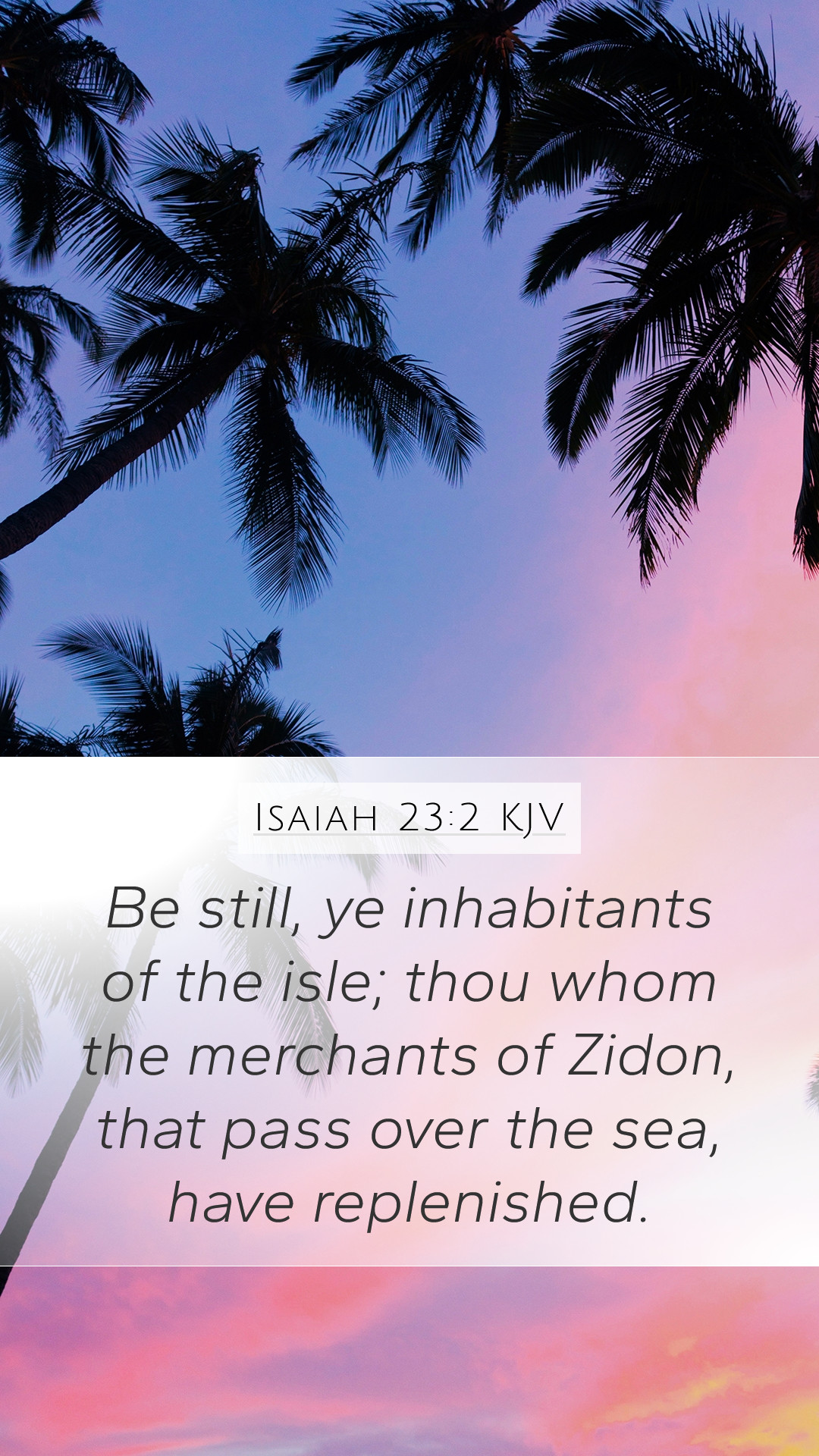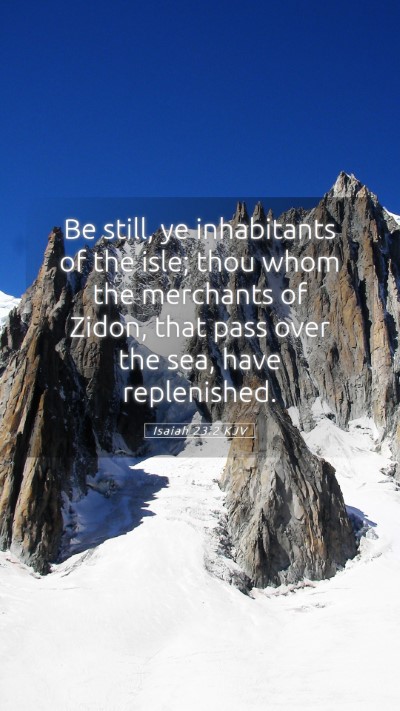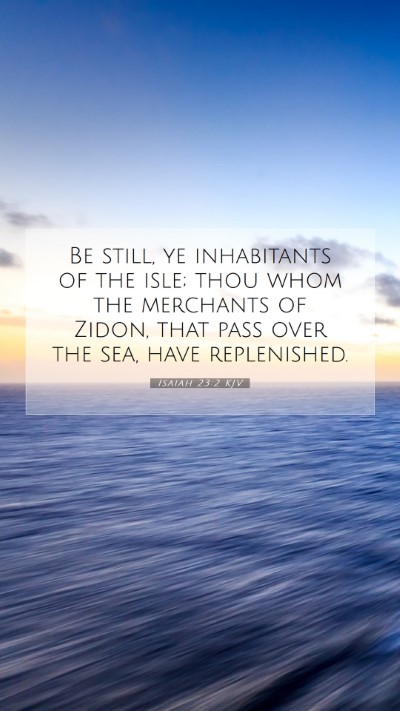Understanding Isaiah 23:2
Isaiah 23:2 states, "Be still, you inhabitants of the coast, you merchants of Sidon; your messengers crossed the sea, and were upon the great waters." This verse is rich in meaning and can be analyzed through various lenses of biblical interpretation.
Overview of the Verse
In this verse, the prophet Isaiah addresses the inhabitants of Tyre and Sidon, emphasizing their maritime activities and the impending judgment that will affect their commercial endeavors. The context involves the impending decline of these prosperous cities, renowned for their trading prowess across the seas.
Commentary Insights
-
Matthew Henry's Commentary:
Henry views the stillness called for in this passage as a prophetic warning for the inhabitants of Sidon, highlighting their dependence on maritime trade. He interprets the stillness as a call to reflection on their vain pursuits and the inability to escape divine judgment. The verse illustrates the inevitable reality of divine retribution on those who engage in idolatry and pride.
-
Albert Barnes' Notes:
Barnes emphasizes the historical context by describing the significance of Sidon's merchants, who were known for their global trade networks. He notes that the crossing of the sea by their messengers indicates their pervasive influence, while also foreshadowing their coming desolation. His commentary calls attention to the failure of human strength and the ultimate sovereignty of God over nations.
-
Adam Clarke's Commentary:
Clarke provides a detailed analysis of the geographical and cultural significance of Sidon, suggesting that the verse may evoke a somber realization of their fate. He suggests that the mention of "great waters" symbolizes the vastness of their reach and commerce, but also the depths of their impending doom. Clarke emphasizes the lesson on the fragility of human enterprises in the face of divine will.
Key Themes in Isaiah 23:2
This verse encapsulates several thematic elements significant to the understanding of the broader narrative of Isaiah:
-
The Fragility of Human Endeavors:
It highlights the idea that despite human pursuits in commerce and trade, there is a higher power that governs the success or downfall of nations.
-
Divine Sovereignty:
The call for stillness implies that God's control over the world is absolute, and human designs can be altered in an instant by His decree.
-
Judgment and Reflection:
The call to be still serves as an invitation for self-reflection and acknowledgment of one's own shortcomings before impending consequences are realized.
Application of the Verse
In personal application, Isaiah 23:2 can serve as a reminder of the transient nature of worldly success and the importance of aligning one's pursuits with spiritual values. It encourages believers to consider where their true dependency lies, cautioning against the dangers of pride and self-sufficiency.
Cross References
- Isaiah 14:24-27: Discusses God's plans against nations and the unbreakability of His will.
- Isaiah 17:12-14: Reflects on the futility of relying on human strength against divine judgment.
- Jeremiah 25:22: Highlights God's judgment on the nations, including Sidon.
Conclusion
Isaiah 23:2 serves as a profound illustration of the themes of frailty, judgment, and divine authority. Through the commentary of Matthew Henry, Albert Barnes, and Adam Clarke, we gain a deeper understanding of its implications for both the historical context and contemporary application. This verse invites readers to engage in thoughtful scripture analysis, enriching their Bible study insights and fostering deeper biblical exegesis.


